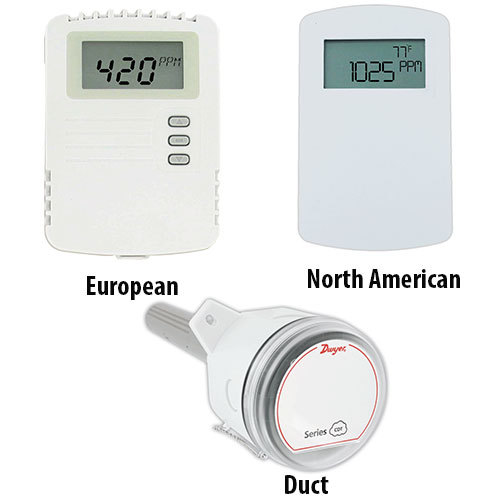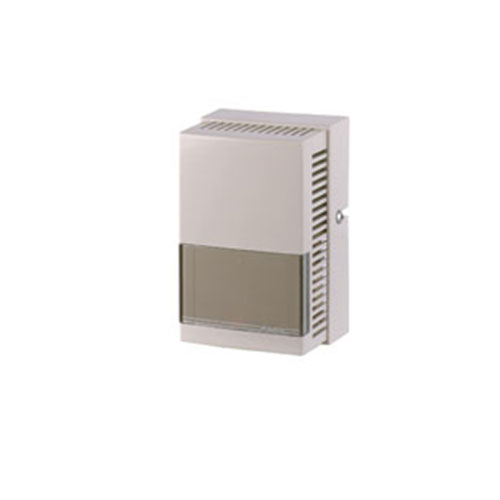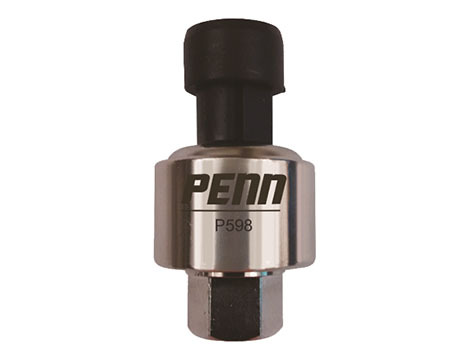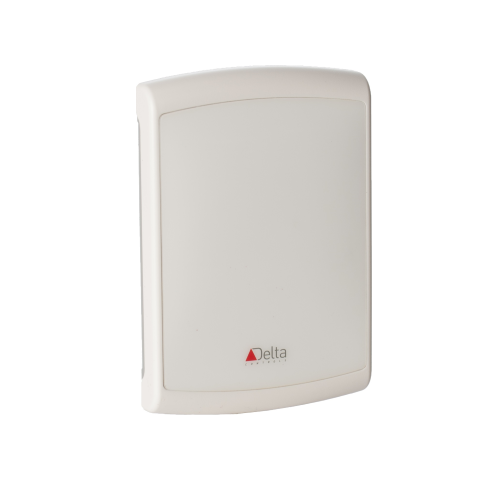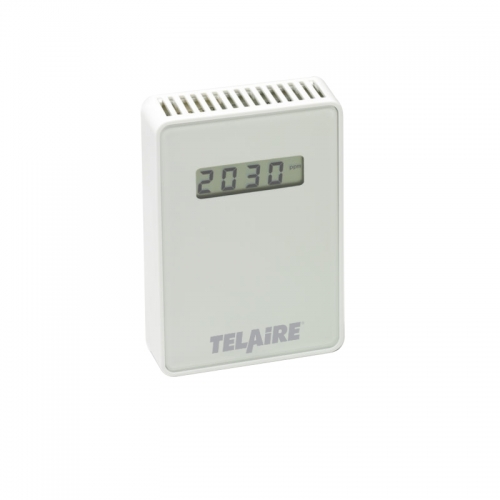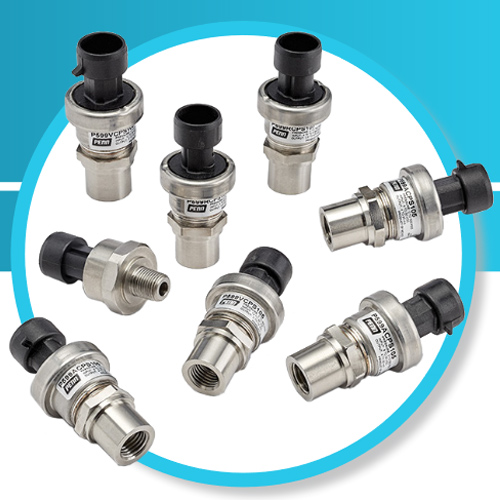- Trang chủ
- Sensor & Transmitter
- A-480 Plastic static pressure tip
A-480 Plastic static pressure tip
Lượt xem: 1205
Danh mục : Sensor & Transmitter
Nhãn hiệu : Dwyer
Dòng sản phẩm : Series CDT Carbon Dioxide/Temperature Transmitter
*Đây là hình đại diện cho dòng sản phẩm này và có thể sai khác với sản phẩm thực tế.
A-480 Plastic static pressure tip
The Series CDT Carbon Dioxide and Temperature Transmitters accurately monitor the CO2 concentration and temperature in indoor environments to help achieve energy savings. For increased sensor accuracy, a single beam dual wavelength non-dispersive infrared (NDIR) sensor is used to automatically correct the measurement in both occupied* and unoccupied buildings against light source aging effects. The single beam dual wavelength sensor technology provides the highest level of accuracy compared to Automatic Baseline Correction methods which can unintentionally shift the calibration based on CO2 levels and barometric pressure conditions. In order to achieve a higher level of accuracy, the Series CDT includes digital barometric pressure adjustment and the ability to field-calibrate the sensor.
For applications that require visual indication, the wall mount configurations of the Series CDT can be ordered with an integral LCD display. Push-buttons are standard on all configurations of the transmitters for access to the menu structure, but wall mount configurations can be ordered without the buttons. To prevent tampering, the action of the buttons can be locked out using an internal dip switch selection.
FEATURES/BENEFITS
Single beam dual wavelength NDIR sensor eliminates draft due to light source agin
Integral passive temperature outputs reduce number of devices mounted in the space
Service display tool available for models without an integral LED
Optional integral display and relay outpu
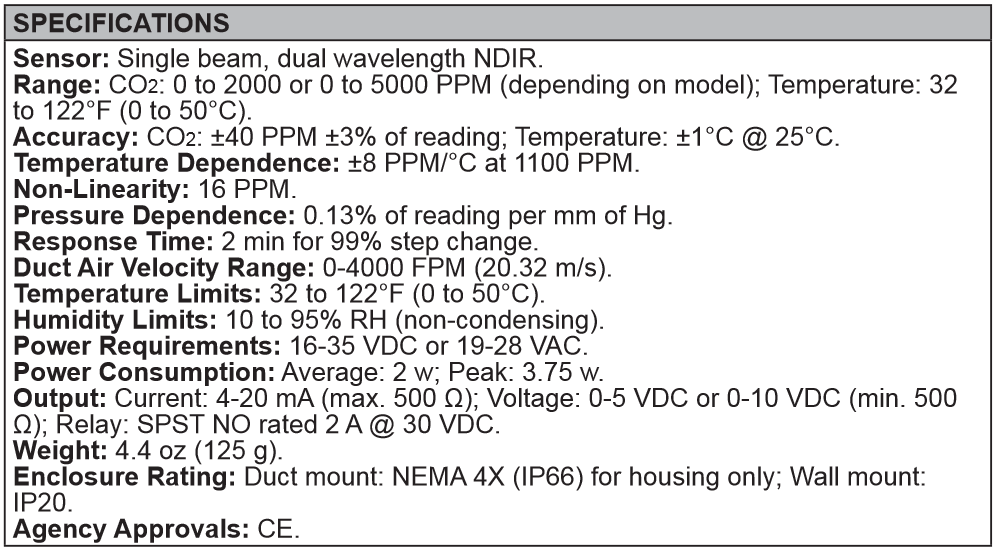
APPLICATIONS
Demand control ventilation in schools, office buildings, hospitals, and other indoor environments
LEED® certification
For buildings occupied 24 hours per day, it is recommended that calibration be verified every 6 to 12 months depending on application

